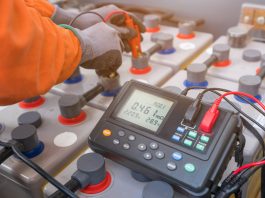Batalyse GmbH introduces a modular software solution that permits companies a fast and automated way to evaluate and monitor their battery data with the hope of producing improved products and accelerating search processes for alternative energy source materials.
Electrochemical energy storage systems and fuel cell technologies hold two of the key factors to making a successful transition to alternative sources of energy. Effective battery data analysis is crucial in research and discovering new materials for alternate energy sources and upgrading pre-existing battery performance.
In batteries and fuel cells, optimised materials and components – such as electrodes, separators, active materials and electrolytes – establish the quality, service life and performance of the system. Electromobility and stationary energy storage applications require new, sustainable and recyclable combinations of materials that have properties such as higher energy density or lower manufacturing costs compared with the systems that are currently available, resulting in a more appealing alternative.
Now, Batalyse GmbH is providing modular software packages to computerise evaluation processes of battery and fuel cell test data, to speed up processes of searching for new materials and identifying the correct combinations. Material manufacturers, cell developers and R&D departments can now use the visualisations of the results as a valuable means to develop and improve their products.
Established by Dr. Markus Hagen, alongside colleague and CTO Eran Nave, Batalyse GmbH, conceptualised from the Pfinztal-based Fraunhofer Institute for Chemical Technology ICT, became a company in its own right in May 2021.
Why is battery data analysis crucial to the production of future batteries?
The Data Analysis module evaluates battery data and electrochemical tests on both laboratory test cells and commercial cells, comparing their values. This allows battery cell buyers to compare suppliers and production batches, for instance, providing immediate insight into which battery cell delivers the best performance.
“Manufacturers continually monitor their batteries and materials, and they review numerous parameters relating to aspects such as the quality of production processes or electrodes. With our three software modules – Data Analysis, Collect and Mind – we can give companies the support they need to develop a battery that truly meets the requirements of the future,” says Dr. Markus Hagen, CEO of Batalyse GmbH.
The Data analysis software module is able to perform its evaluations regardless of what testing device is being used and is compatible with all file formats and structures. This gives it a huge advantage over the existing competition. The Collect and Mind Modules are available separately, yet as all of the modules interact with one another, Batalyse recommends a complete package.
Collect automatically assembles every item of raw data as well as the associated metadata, storing it all on a central server. Not only does this tool handle battery and fuel cell data, but it is also able to cope with processes of analysis, production and images. Mind Provides a visual representation of the data produced by Collect, and supplements these with crucial information such as customer, test specimen, material and project data that can be categorised, filtered and networked.
An access management feature controls who has access to each stock of data and makes it possible to share projects with customers. The results provided by Data Analysis can also be stored in Collect and subsequently visualised in Mind. As Collect and Mind capture every piece of data and information available, they provide an excellent foundation for using artificial intelligence.
“Data evaluation and documentation are really time-consuming parts of research, development and production. What looks like a simple measurement actually contains information chains with hundreds of parameters relating to materials, processes and tools. Our combination of software modules allows us to automate everything involved in data processing and prepare data and information for AI purposes,” explained Dr. Markus Hagen.
While Data Analysis is available now, the versions of Mind and Collect that are currently being used at Fraunhofer ICT are still within the prototype stage. The aim is to launch them in early 2022, but both modules are currently available for industry customers to test out.









